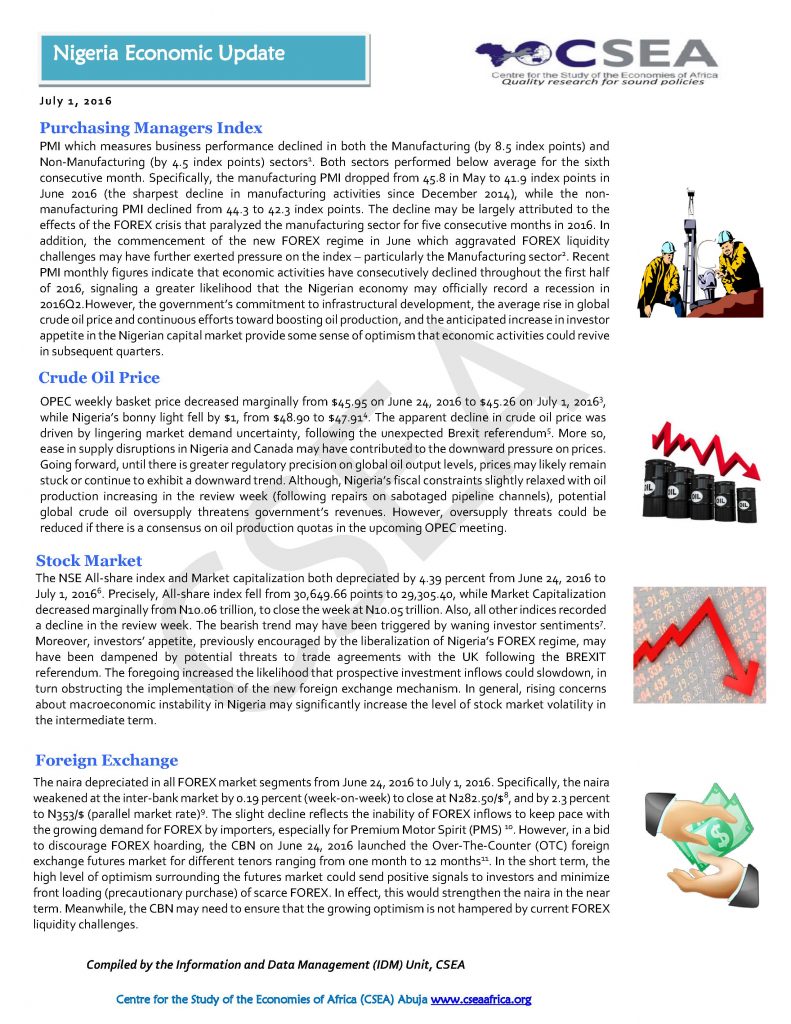Macroeconomic Report & Economic Updates

July 8, 2016
Nigeria Economic Update (Issue 29)
OPEC weekly basket
price decreased marginally from $45.95 on June 24, 2016 to $45.26 on July 1,
2016,while Nigerias bonny light fell by $1, from $48.90 to $47.91.
The apparent decline in crude oil price was driven by lingering market demand
uncertainty, following the unexpected Brexit referendum. More so, ease
in supply disruptions in Nigeria and Canada may have contributed to the
downward pressure on prices. Going forward, until there is greater regulatory
precision on global oil output levels, prices may likely remain stuck or continue
to exhibit a downward trend. Although, Nigerias fiscal constraints slightly
relaxed with oil production increasing in the review week (following repairs on
sabotaged pipeline channels), potential global crude oil oversupply threatens
governments revenues. However, oversupply threats could be reduced if there is
a consensus on oil production quotas in the upcoming OPEC meeting.
